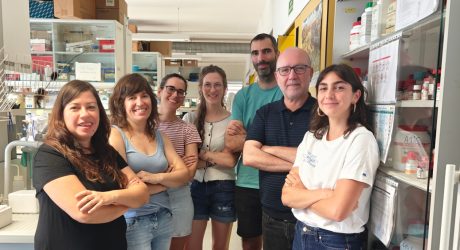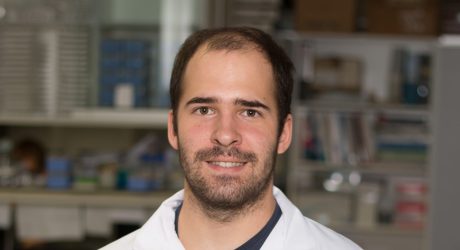A new treatment for Polycystic Ovary Syndrome (PCOS) in adolescents and young women
Dr Abel López-Bermejo and Dr. Judit Bassols from IDIBGI participate in a new European project SPIOMET4HEALTH to treat PCOS.
- The project, funded by the European Commission with €6 million, involves a consortium of 17 research groups from 9 European countries.
- SPIOMET4HEALTH will test a novel treatment to improve the quality of life of adolescents and young women suffering from Polycystic Ovary Syndrome (PCOS), a disorder affecting 5-10% of women worldwide.
SPIOMET4HEALTH is a new Horizon 2020 health project whose main objective is to study, in a multi-centric phase II clinical trial, a new treatment for PCOS in adolescent girls and young adult women.

The initiative, funded by the European Commission with a budget of 6 million euros, was launched on April 2021 and will last 5 years. SPIOMETH4HEALTH will test the efficacy of this new treatment for PCOS, the most common endocrine-metabolic disorder among women of reproductive age, affecting 5-10% of women worldwide.
This syndrome is the most frequent cause of anovulatory subfertility, and it is also associated with other lifelong disorders like type 2 diabetes, premenopausal cancer and anxiety/depression, with a negative impact on the health and quality of life of these subjects and their offspring.
To face this challenge, SPIOMET4HEALTH will be carried out by a consortium of 17 organizations, partners and key research groups working on PCOS across Europe. Coordinated by Fundació Sant Joan de Déu/Hospital Sant Joan de Déu, the consortium includes Fundació Institut D’investigacio Biomedica De Girona Doctor Josep Trueta (IDIBGI) through the group leaders Dr. Abel López-Bermejo and Dr. Judit Bassols, Katholieke Universiteit Leuven, Private Universitaet Witten/Herdecke Ggmbh, Medizinische Universitat Graz, Region Syddanmark, Norges Teknisk-Naturvitenskapelige Universitet, Alma Mater Studiorum – Universita Di Bologna, Istanbul Universitesi, Optimapharm, Laboratorio Reig Jofre SA, Complutense University of Madrid, Outcomes’10 SL, European Institute of Women’s, Make Mothers Matter EU Delegation, Asphalion SL and Zabala Innovation.
Challenges and contribution of SPIOMET4HEALTH
Currently, there is no approved treatment for PCOS in adolescents and young women, and approximately 98% of them are prescribed oral contraceptives (OCs). OCs do alleviate key symptoms, however, they do not revert the underlying pathophysiology, and patients remain at risk for post-treatment subfertility.
Pilot studies developed have identified a new treatment for PCOS based on the combination at low doses of three medications: spironolactone (SPI), pioglitazone (PIO) and metformin (MET): SPIOMET.
However, this treatment had some limitations: the medications used in these studies were combinations of generic products that had to be administered separately, resulting in the intake of three different tablets, raising potential compliance problems. In addition, these studies were conducted in small populations with limited ethnic variability and mostly in women without overweight or obesity, which limits the relevance of the results for this population ,who constitute approximately 50% of the PCOS patients.
SPIOMET4HEALTH aims to overcome these limitations by testing a novel treatment consisting of SPIOMET in a single tablet (SPI, 50 mg; PIO, 7.5 mg and MET, 850 mg) administered daily. Combining SPIOMET with lifestyle measures, the consortium aims at normalising ovulation and endocrine-metabolic status through reduction of hepato-visceral fat excess.
SPIOMET4Health may change the current paradigm of PCOS treatment by offering a pathophysiological approach, since the new therapy will focus not only on the gonadotropic axis but will also impinge on the underlying mechanisms responsible for the development of PCOS.
This approach is expected to reduce the number of persons affected, to improve the quality of life, and to lower the economic burden on European healthcare systems. The design of SPIOMET4HEALTH foresees that the patients will be engaged over the entire timespan of the project and will also contribute to the ultimate study evaluation. The project incorporates an analysis of the patient’s quality of life that should provide the first large-scale evidence on the psychosocial benefits of the treatmetns studied. The analysis of the socioeconomic impact of the new therapy will allow to evaluate the direct and indirect costs for health systems and for society in the short, medium and long term.



